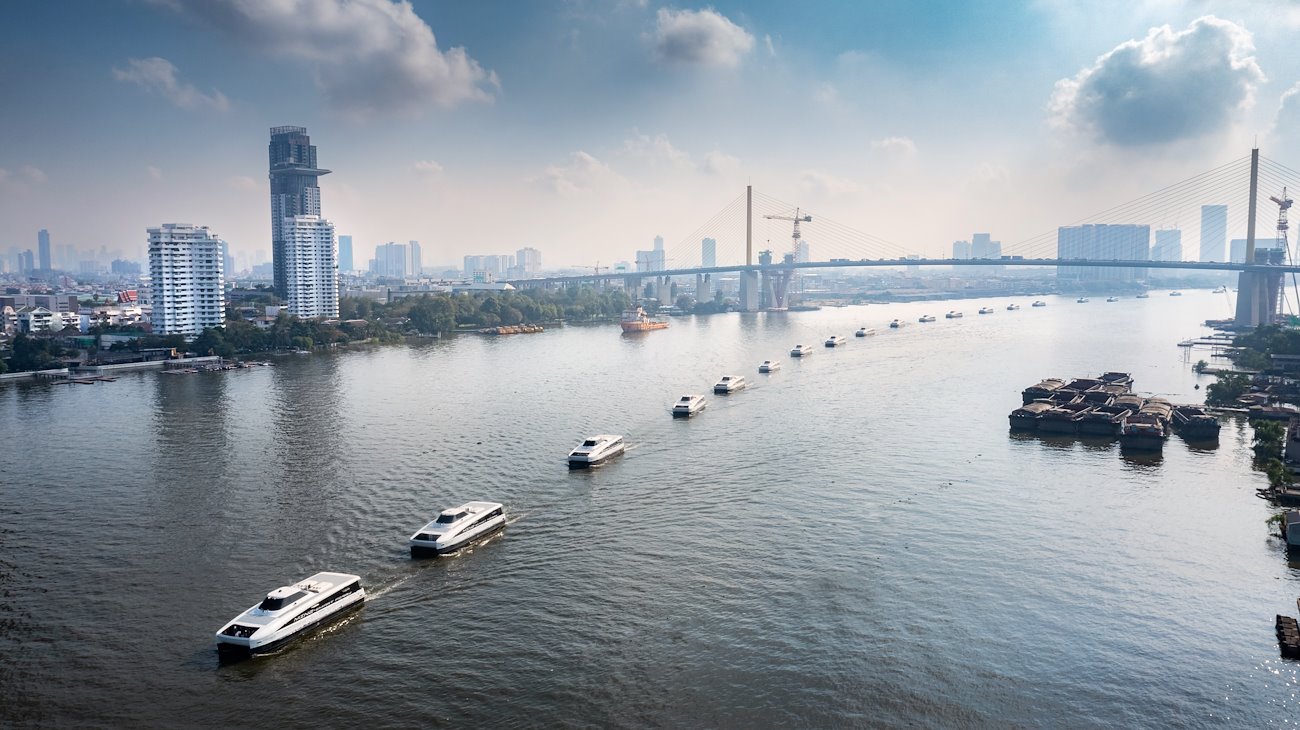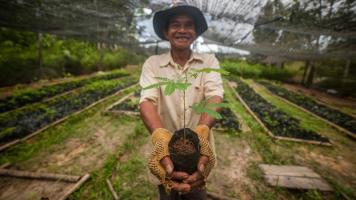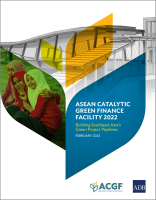
ADB is helping the private sector in Thailand get access to green financing. Among the projects it is supporting is Energy Absolute's E Smart Bangkok Mass Rapid Transit Electric Ferries Project, which will deploy the first electric ferry fleet for mass rapid transport in Southeast Asia. Photo credit: ADB.
The twin goals of Thailand's electric vehicle (EV) strategy are to reduce greenhouse gas emissions in the transport sector and to become a regional leader in EV production.
Thailand is racing to build an electric vehicle (EV) ecosystem as part of its climate strategy to reduce greenhouse gas (GHG) emissions in the transport sector. At the same time, the country wants to solidify its position in the automotive industry as the “Detroit of Asia” by becoming a regional leader in EV production. Other countries in Southeast Asia are also eyeing a slice of the emerging market for EVs.
Thailand’s EV road map is consistent with the Bio-Circular-Green Economy (BCG) model, which underpins the national policy to promote inclusive and sustainable growth through innovation, research and development, and advanced green technologies. Adopting the BCG model is expected to boost post-pandemic recovery by mobilizing $23 billion in new investments, including a private sector share projected at 85% by 2030.
In 2023, the government launched a 5-year investment promotion strategy to drive Thailand into the new economy by attracting investments in five strategic sectors, which include the electric vehicle supply chain. It is offering “up to 13 years corporate income tax exemption without a cap” and other premium incentives.
Several automakers are already planning to use the country as an EV hub. These include Toyota, BYD, Great Wall Motor, SAIC Motor, and Mercedes-Benz.
Phased implementation
However, EVs are not expected to dominate the roads anytime soon.
Thailand sees internal combustion engine (ICE) vehicles coexisting with EVs for some time. Its 30@30 Policy Plan sets a target for zero-emission vehicles (ZEVs) to account for at least 30% of total automotive production by 2030. The development plan includes domestic manufacturing of batteries.
At COP 26 in 2021, Thailand announced that it is aiming for carbon neutrality by 2050 and net-zero emissions by or before 2065. It also committed to enhance its nationally determined contribution to cut GHG emissions by 30% to 40% in 2030 from the previous target of 20% to 25%. Decarbonizing the transport sector will be crucial as it accounts for about a third of the country’s carbon dioxide emissions.
In its revised Long-term Low Emissions Development Strategy submitted to the UNFCCC in 2022, the country recognizes that “electrification of the transport sector would first require decarbonization of the power sector.” Otherwise, this may result in “insignificant GHG reduction or even higher GHG emissions.”
ADB support
The Asian Development Bank (ADB) is supporting Thailand’s efforts to transition to clean energy and to energy-efficient and low-emission vehicle fleets and public transport. This includes helping the private sector get access to green financing.
ADB is providing green financing to Energy Absolute, the largest renewable energy company in Thailand by installed capacity. The company has diversified into large-scale production of lithium-ion batteries for transport and power, and electric vehicle charging infrastructure for various types of electric vehicles, such as e-ferries, e-buses, and e-cars.
ADB approved a $47.6-million green loan in 2021 to finance part of Energy Absolute’s 90-megawatt Nakornsawan Solar and 260 MW Hanuman Wind power plants. The project is also expanding the country’s Electric Vehicle Charging Network by installing 3,600 charging stations in major cities. This is the first climate loan in Thailand to be certified by the Climate Bonds Initiative under the international Climate Bond Standards and Certification Scheme.
ADB is also financing the E Smart Bangkok Mass Rapid Transit Electric Ferries Project, which will be the first electric ferry fleet for mass rapid transport in Southeast Asia, and the purchase of up to 1,200 electric buses. Both are projects of Energy Absolute.
This year, ADB approved a loan package for BANPU Public Company Limited to support the financing of 1,500 six-seater electric tuktuks (e-tuktuks) and related charging stations for micro-scale transit services in Bangkok. The iconic three-wheeled tuktuks play a vital role in the transport system, linking communities to each other and to the main public transport arteries. The funding will also support a 1.3-gigawatt-hour expansion of a lithium-ion electric vehicle battery manufacturing facility owned by the company in Jiangsu province in the People’s Republic of China (PRC).
Founded in 1983, BANPU is a leading energy company with a global business presence across the Asia and the Pacific, and a presence in the United States. In 2015, BANPU began integrating clean energy and emission-reduction initiatives into its operations and announced an accelerated transition plan toward more green and sustainable operations following its Greener & Smarter strategy.
The package, worth close to $80 million, includes a concessional loan of up to $10.7 million from the ADB-administered Clean Technology Fund. ADB will also implement technical assistance, funded by the ASEAN Catalytic Green Finance Facility, to assess the potential for micro-scale transit services in other Southeast Asia cities.
These projects demonstrate how EVs and related infrastructure can be developed into bankable investments that can help Thailand as well as other countries in the region not only improve mobility but also achieve climate goals through green solutions and tap emerging market opportunities in the new economy.

